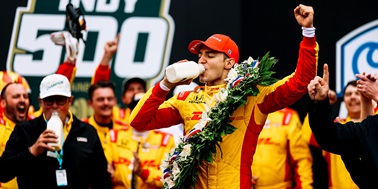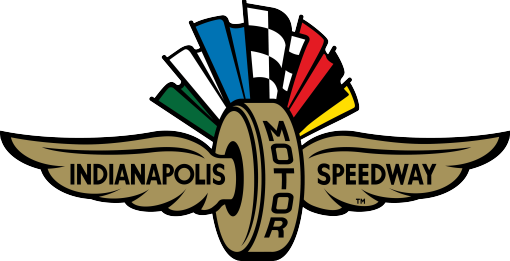The Red Bull Air Race World Championship is the supreme test of skill for any great pilot. There's no time for an inexperienced rookie to learn the ropes and get up to speed: You're flying high from the start.
“It isn’t like car racing,” former Red Bull Air Race pilot Péter Besenyei said. “You can put a young guy in a Formula One car without much experience. If something goes wrong, OK, not good, but he probably finishes up in a gravel trap. We can’t afford that sort of mistake because the ground is too close. We need pilots with experience.”
That's where the Challenger Class comes in. In 2014, the Challenger Cup was conceived to build on a pilot’s existing experience and help them develop the skills needed for air racing and potential advancement to the Master Class. Pilots fly at the same locations at the Master Class pilots but race with a simpler track configuration and standardized race planes. It's paying off: six of the 2018 Master Class are graduates of the Challenger Cup.
Challenger Class pilots are already superb aerobatic pilots but aerobatics and air racing, particularly racing at ultra-low altitude, are very different disciplines. For the Challenger Class, it's all about finding the mental discipline needed to perform against the clock while avoiding penalties.
“I am lucky to have very good coaches,” Challenger Class pilot Mélanie Astles said. “I had absolutely no experience of flying low – but they have coached me on the technical side of air racing and also on the correct mental approach to dealing with things like this. With this coaching, I felt I could make real progress.”
While none of the Challenger Cup pilots are lacking in enthusiasm, it is difficult to imagine anyone with more passion than Astles, 36. Competing in the Red Bull Air Race allows her to live out a childhood dream.
“As a little girl my dream was to be a fighter pilot,” Astles said. “I wanted to fly low and fast – but in France that’s absolutely forbidden, and I respect the rules. In fact, the Red Bull Air Race is the only place that I can experience it. Our time in the air is short, we don’t do many hours in the track – but the time that we do spend racing is absolutely breathtaking.”
Growing up in southern France, Astles took to competition aerobatics in her early 20s and almost immediately began winning trophies. By the time the Red Bull Air Race came calling, she was a member of France’s prestigious national aerobatic team. It’s a valuable skill set although one that doesn’t make switching codes straightforward, Astles said.
“The Red Bull Air Race is a less physical competition than aerobatics, but one that requires a lot more focus,” she said. “The great similarity, of course, is that we’re flying an aerobatic plane; the great difference is that we’re flying it low!"
A newcomer in 2016, Astles initially struggled, but her 2017 results, culminating in a final-round victory in Indianapolis, marked her as a title contender this year against fierce competition. Astles will defend her Challenger Class win last year at IMS – the first by a woman in a major event in the 108-year history of the Speedway -- on Oct. 6-7 at the Racing Capital of the World.
It’s a curiosity of the competition that winning the Challenger Cup is the short-term goal, but everybody here harbors ambition of gaining promotion and competing against the best in the sport in the Master Class. But first there’s a lot of on-the-job learning to absorb.
Astles Soars after Fulfilling Airborne Dream in Red Bull Air Race

The Red Bull Air Race World Championship is the supreme test of skill for any great pilot. There's no time for an inexperienced rookie to learn the ropes and get up to speed: You're flying high from the start.
Latest News
View All News
No. 1: IMS Filled to Brim in Rare Indianapolis 500 Sellout
The Penske Entertainment editorial staff is looking back at the 10 biggest moments of 2025 at Indianapolis Motor Speedway in this year-end series, with one installment appearing on the site per day in countdown fashion from Dec. 22-31.

No. 2: Alex Palou Earns Signature First Oval Victory at Indy 500
The Penske Entertainment editorial staff is looking back at the 10 biggest moments of 2025 at Indianapolis Motor Speedway in this year-end series, with one installment appearing on the site per day in countdown fashion from Dec. 22-31.

No. 3: Robert Shwartzman Shocks Sports World with Dramatic Indy 500 Pole
The Penske Entertainment editorial staff is looking back at the 10 biggest moments of 2025 at Indianapolis Motor Speedway in this year-end series, with one installment appearing on the site per day in countdown fashion from Dec. 22-31.
